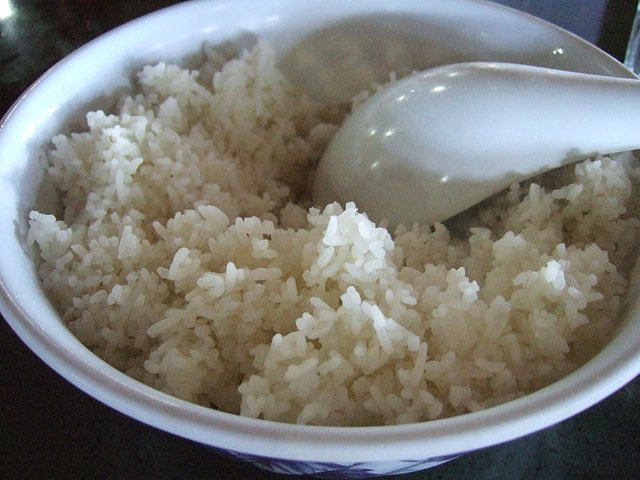Rice
Rice is rice (or sometimes other cereals) that have been boiled (and grounded). The process of boiling rice is also known as 'team'. Penanakan is needed to arouse the aroma of the rice and make it softer but still conserved. Making rice with excess water in the boiling process will produce porridge.
The color of cooked rice (tanak) varies depending on the type of rice used. Generally, the color of the rice is white when the rice used is white. Brown rice or black rice will produce a rice color similar to the color of rice. Low amylose content in rice starch will produce rice that tends to be more transparent and sticky. Ketan, whose stomach contains only a small amount of amylose and is almost entirely amylopectin, has such properties. Japanese rice (japonica) for sushi contains about 12-15% amylose content so the rice is more sticky than the rice consumed in Tropical Asia, whose amylose content is about 20%. Generally, rice with amylose content of more than 24% will result in 'pera' rice (not sticky, hard, and easily separated).
Rice is eaten by most Asians as a major source of carbohydrates in the daily menu. Rice as staple food is usually served with side dishes as a complement to taste and also complement one's nutritional needs. Rice can be processed again with other food ingredients into new dishes, such as fried rice, yellow rice or kebuli rice. Rice can be said staple food for people in Asia, especially Southeast Asia.

Hi! I am a robot. I just upvoted you! I found similar content that readers might be interested in:
https://www.scribd.com/document/342606122/Research-Proposal